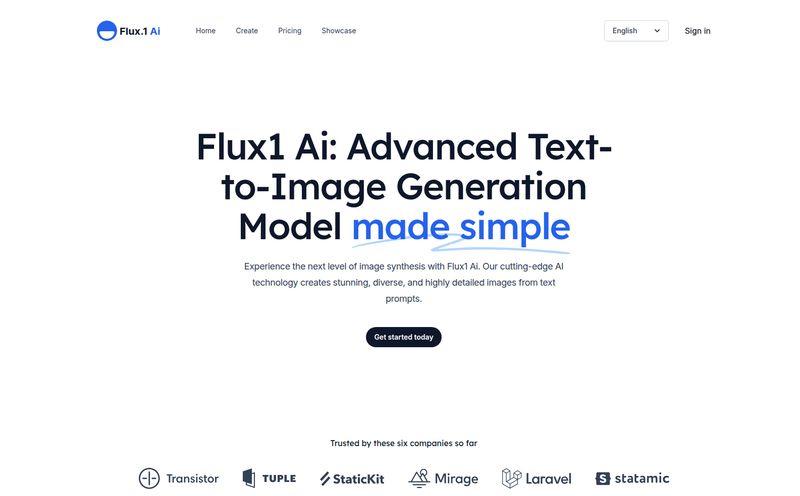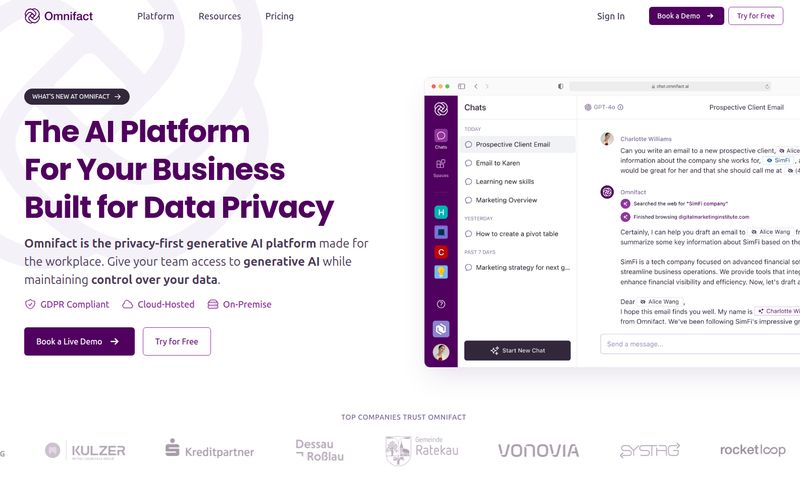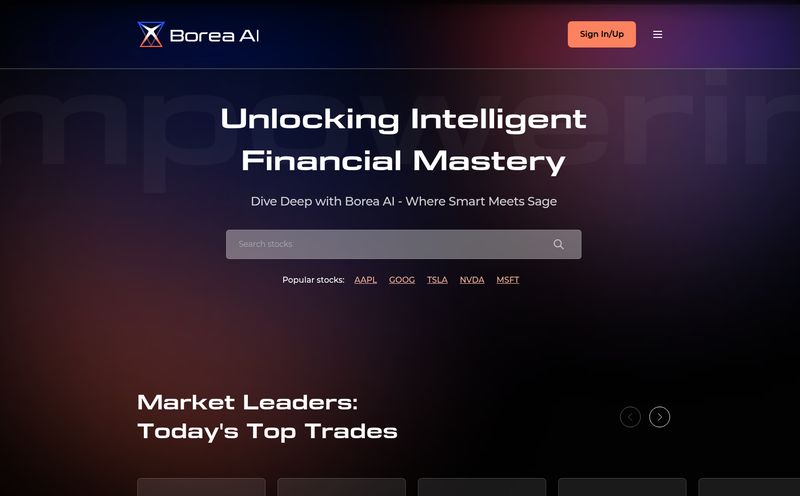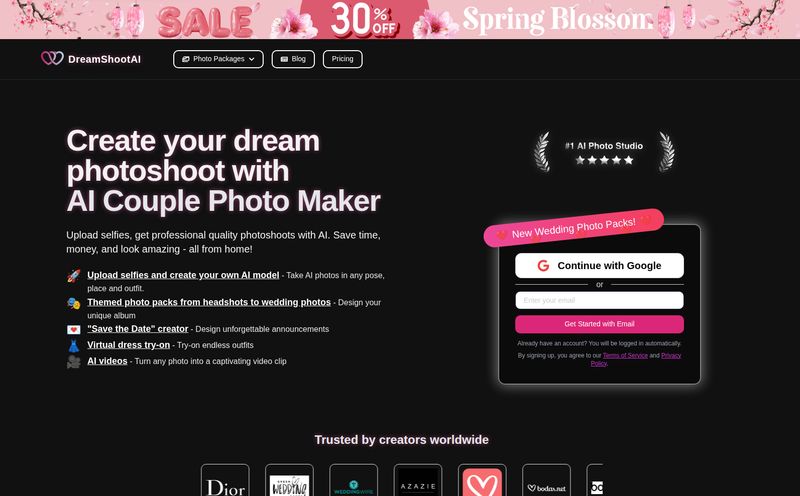I’ve been around the block a few times in the tech and marketing world. I've seen more 'game-changers' than I can count, and honestly, most of them fizzle out. But every so often, you stumble across a piece of technology that feels... different. Something that isn't just another app, but a genuine shift in how an entire industry operates.
Let's talk about clinical trials. For anyone outside the pharma world, they're just a vague concept. But for those in the know, they are the multi-billion dollar traffic jam on the highway to new medicines. They’re slow. They're expensive. And a shocking number of them fail, leaving promising treatments to wither on the vine. It’s a massive problem.
So, when I came across a company called Unlearn, I was intrigued. Their pitch? Using AI to create “digital twins” of clinical trial participants. It sounds like something straight out of science fiction, right? But what if it isn't? What if this is the key to unclogging that traffic jam?
So, What Exactly is Unlearn? (And Why Should You Care?)
Okay, let's break this down without the corporate jargon. Imagine you're running a clinical trial for a new Alzheimer's drug. You have a group of patients receiving the drug and a control group receiving a placebo. The problem is, you need that control group to see if your drug actually works better than nothing. This requires more patients, more time, and a lot more money.
Unlearn's whole deal is to tackle this head-on. They use AI and what they call “disease-specific ML models” to look at a trial participant’s baseline data—you know, their initial medical stats at the start of the study. From just that starting point, their platform creates a digital twin. Think of it as a super-advanced, data-driven simulation of that specific person. This digital doppelgänger then predicts how the real patient would likely progress over time if they were in the control group.
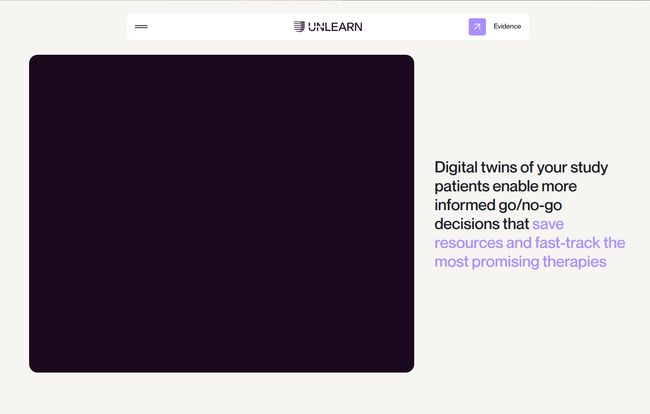
Visit Unlearn
The result? You can run smaller, more focused trials because you have a highly accurate, AI-generated prognosis for every single participant. You're not just comparing a treatment group to a random control group; you're comparing each participant's actual outcome to their own predicted outcome. It's a fundamental shift in trial design.
The Big Promises: Can AI Really Accelerate Drug Development?
The claims on their site are bold. Let’s be real, they have to be. They're talking about accelerating clinical development, slashing costs, and boosting trial success rates. This is the holy grail for every pharma and biotech company on the planet. For years, people have talked about making trials more efficient, but it's been mostly incremental changes. This feels different.
Improving decision-making is another huge piece of the puzzle. By getting predictive insights, researchers can supposedly see which therapies are most promising earlier in the process. This means they can double down on winners and cut losers before they burn through hundreds of millions of dollars. It’s like having a statistical crystal ball, helping you make smarter bets. I’ve seen so many good ideas fail due to funding issues, so anything that makes the process more capital-efficient gets my vote.
The Regulatory Nod: EMA Qualification and FDA Alignment
Now, here's where my ears really perked up. A cool AI platform is one thing, but getting regulatory bodies to even look at your data is another beast entirely. Unlearn has apparently received Qualification from the European Medicines Agency (EMA) and their methods align with FDA guidance.
This is not a small detail. This is massive. It means that the powers-that-be in Europe have looked at their method for using digital twins to reduce the size of control groups and said, 'Okay, this is a valid approach.' It moves Unlearn from the 'cool but speculative tech' bucket into the 'serious, industry-vetted solution' bucket. For any company considering this, that regulatory green light is probably the most important feature of all.
Let's Get Real: The Hurdles and Headaches
Alright, I'm excited, but I'm not a cheerleader. As with any powerful new tool, there are always strings attached. It's never as simple as just signing up and watching the magic happen.
The Integration Challenge
This isn't a simple SaaS tool you just switch on. Clinical trial processes are incredibly complex, deeply entrenched, and regulated up to the eyeballs. Dropping a disruptive AI platform into that ecosystem is a major operational lift. You can't just 'try it out.' It requires buy-in from clinicians, data scientists, regulatory affairs teams, and executives. It's a significant change to a workflow that’s been done a certain way for decades.
Do You Have the Brainpower?
The site mentions it, and it's a real concern: you'll likely need some in-house expertise in AI and digital twin tech to get the most out of this. While the platform is designed to be user-friendly, understanding the models, interpreting the outputs, and communicating them to the rest of teh team requires a certain skillset. This isn't something you can just hand off to a junior research assistant.
The Privacy Question Mark
This one gives me a little pause. The provided info mentions “limited information on specific data privacy and security measures.” When you’re dealing with something as sensitive as individual patient health data, this can't be an afterthought. I’m sure they have robust protocols—they have to—but I’d be asking some very pointed questions about HIPAA compliance, data anonymization, and security infrastructure during any demo. It's a non-negotiable point.
What's the Price Tag on the Future?
You won't find a pricing page on Unlearn's website. And that's not surprising. This is high-level enterprise software, not a monthly subscription for a keyword tool. The pricing is almost certainly bespoke, calculated based on the size of the trial, the therapeutic area, and the level of support required. You'll have to book a demo and have a serious conversation with their sales team.
My guess? It's not cheap. But the value proposition isn't about being cheap; it's about the ROI. If they can save a company $50 million and shave a year off a drug's development timeline, the price tag becomes a lot more palatable.
Who's Actually Using This?
Talk is one thing, but adoption is another. The images on their site show partnerships with companies like Remind, Trace Neuroscience, and Pro-feno. This is crucial social proof. It shows that Unlearn isn't just a lab experiment; it’s being deployed in the real world to optimize actual clinical trials, including a notable one in Alzheimer's Disease. Seeing other biotechs put their trust—and their trials—in this technology speaks volumes.
My Final Verdict on Unlearn
So, is Unlearn the silver bullet for what ails the pharmaceutical industry? Probably not. No single company is. But is it a powerful, intelligent, and desperately needed new weapon in the arsenal? Absolutely.
The concept of digital twins moves us from a world of broad statistical averages to one of personalized prediction. The regulatory validation from the EMA is a massive vote of confidence. Yes, there are implementation hurdles and important questions to ask, especially around data privacy. But the potential to get life-saving drugs to patients faster and more affordably is a goal worth chasing. I'll be watching Unlearn very, very closely. This could be one of those moments we look back on as a real turning point.
Frequently Asked Questions about Unlearn
- What is a digital twin in a clinical trial?
- It's an AI-generated, computational model of a specific trial participant. Created from their baseline health data, it predicts how that individual's disease would likely progress over time if they were not receiving the experimental treatment, allowing for more precise trial analysis.
- How does Unlearn help reduce clinical trial costs?
- By creating predictive models for participants, Unlearn can reduce the required size of control (placebo) groups. Smaller trials mean lower operational costs, less time spent on patient recruitment, and a faster path to results.
- Is Unlearn's technology approved by regulators?
- Yes, and this is a key differentiator. Unlearn's methods have received Qualification from the European Medicines Agency (EMA) for use in clinical trials, and they state their approach aligns with FDA guidance, giving it significant credibility.
- What kind of expertise is needed to use Unlearn?
- While the platform is designed to be accessible, having team members with expertise in AI, machine learning, and biostatistics would be highly beneficial to fully interpret the data and integrate the platform into existing clinical trial frameworks.
- Is Unlearn suitable for all types of clinical trials?
- Unlearn develops disease-specific models, so its applicability would depend on the therapeutic area. It seems particularly powerful for chronic diseases where progression can be modeled over time, like in neurology (e.g., Alzheimer's) or immunology.
- How does Unlearn handle patient data privacy?
- This is a critical question to ask during a demo. As they deal with highly sensitive health information, they are expected to have stringent security and anonymization protocols in place to comply with regulations like HIPAA and GDPR, though specific details are not readily available on their public site.
Reference and Sources
- Unlearn Official Website
- Unlearn and Remind Partnership Press Release
- EMA Information on Qualification of Novel Methodologies
